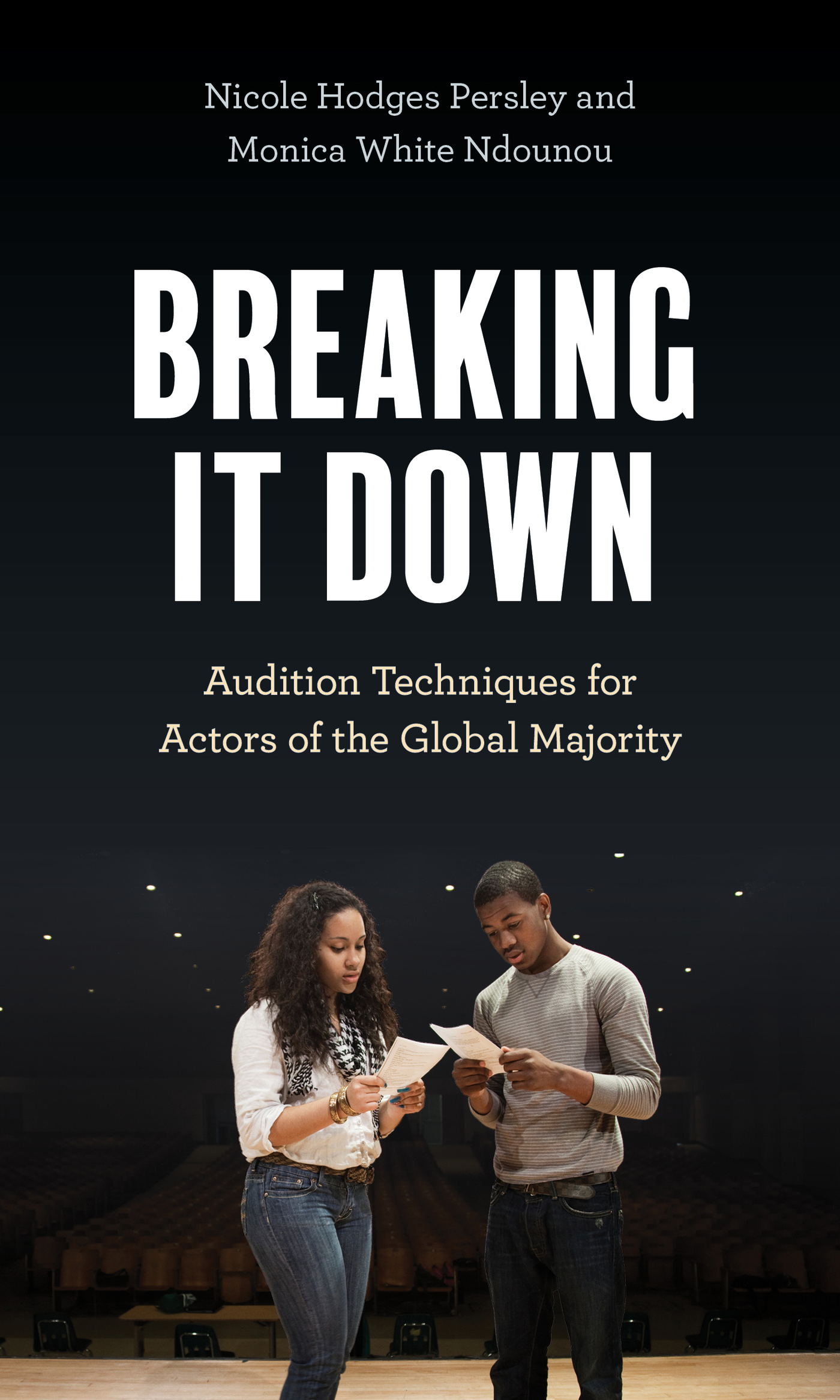Breaking It Down
Audition Techniques for Actors of the Global Majority
Nicole Hodges Persley
Monica White Ndounou
ROWMAN & LITTLEFIELD
Lanham Boulder New York London
Published by Rowman & Littlefield
An imprint of The Rowman & Littlefield Publishing Group, Inc.
4501 Forbes Boulevard, Suite 200, Lanham, Maryland 20706
www.rowman.com
6 Tinworth Street, London SE11 5AL, United Kingdom
Copyright 2021 by The Rowman & Littlefield Publishing Group, Inc.
All rights reserved. No part of this book may be reproduced in any form or by any electronic or mechanical means, including information storage and retrieval systems, without written permission from the publisher, except by a reviewer who may quote passages in a review.
British Library Cataloguing in Publication Information Available
Library of Congress Cataloging-in-Publication Data
Names: Hodges Persley, Nicole, 1969 author. | Ndounou, Monica White, 1976 author.
Title: Breaking it down : audition techniques for actors of the global majority / Nicole Hodges Persley, Monica White Ndounou.
Description: Rowman & Littlefield, [2021] | Includes bibliographical references and index. | Summary: This volume offers strategic approaches to auditioning for women, men, and non-binary actors of the global majority. It provides a fresh approach from the perspectives of two directors of color who are also actors working in theater, film, and television.Provided by publisher.
Identifiers: LCCN 2020052284 (print) | LCCN 2020052285 (ebook) | ISBN 9781538137079 (cloth) | ISBN 9781538137086 (epub)
Subjects: LCSH: AuditionsUnited States. | Minorities in the performing artsVocational guidanceUnited States. | ActingVocational guidanceUnited States.
Classification: LCC PN2071.A92 H57 2021 (print) | LCC PN2071.A92 (ebook) | DDC 792.02/8dc23
LC record available at https://lccn.loc.gov/2020052284
LC ebook record available at https://lccn.loc.gov/2020052285
 TM The paper used in this publication meets the minimum requirements of American National Standard for Information Sciences Permanence of Paper for Printed Library Materials, ANSI/NISO Z39.48-1992.
TM The paper used in this publication meets the minimum requirements of American National Standard for Information Sciences Permanence of Paper for Printed Library Materials, ANSI/NISO Z39.48-1992.
In loving memory of Cicely Tyson
Introduction
Actors at every career level can experience what the late, great actor, director, and writer Chadwick Boseman described during his keynote address at the 150th commencement of his alma mater, the historically Black college Howard University, in 2018. The speech laid out his early process of breaking it down to land and perform roles and how he avoided being broken down by an entertainment industry that insists on stereotyping Black people and other marginalized groups.
In the latter half of his speech, Boseman primarily addressed his experience as a cisgender, Black man and actor building his early career. He shared some of the triumphs and challenges of his early career and how they laid the foundation for his career path, which was grounded in fulfilling his purpose. His story speaks volumes about the challenges actors of the global majority face in theater, film, and television:
I was on a roll when I entered the system of entertainment: theater, television, and film. In my first New York audition for a professional play, I landed the lead role. From that play I got my first agent. From that agent I got an onscreen audition. It was a soap opera. It wasnt Third Watch. It was a soap opera on a major network. I scored that role too. I felt like Mike Tyson when he first came on the scene, knocking out opponents in the first round.
Bosemans early success in auditions helped him land an agent and gave him the confidence and exposure he needed to access opportunities on stage and screen. Although he does not name the soap opera in the speech, it has been identified as All My Children, a popular soap opera that ran on network television from 1970 to 2013a pretty big break for any new actor.
As he discovered the differences in process and preparation in theater versus television, he learned other valuable lessons. He went on:
With this soap opera gig I was already promised to make six figures, more money than I had ever seen. I was feelin myself. But once I got the first script, and with soap operas, you very often get the script the night before and you shoot the whole episode in one day with little to no time to prepare. Once I saw the role I was playing, I found myself conflicted. The role wasnt necessarily stereotypical, a young man in his formative years with a violent streak pulled into the allure of gang involvement. Thats somebodys real story.
What Boseman attempted to distinguish there is the fine line between stereotypes and believable, three-dimensional stories. Stereotypes are things that are often somebodys real story, yet become stereotypes because they are exaggerated assumptions that are projected onto the story of everyone in a certain group. Stereotypes are not fairytales, yet are often used by Hollywood as tales that represent a group as a whole, which is problematic and hurtful.
Boseman was right, of course, that a young man with a violent streak may find gang involvement alluring, regardless of what he looks like. At the same time, it does conform to a stereotype with someone who looks like him in a two-dimensional role. An actor facing such a breakdown has a choice to make. Boseman recognized the humanity in the character breakdown while also noting the potential harm in superficial treatment of the subject matter (gang involvement) and the character. In order to reconcile this conflict, Boseman referred back to his training at Howard University, which enabled him to immerse himself in Black culture and the performing arts under the tutelage of luminaries like Phylicia Rashad and Al Freeman Jr. He continued:
Never judge the characters you play. Thats what we were always taught. Thats the first rule of acting: that any role played honestly can be empowering. But I was conflicted because this role seemed to be wrapped up in assumptions about us, as Black folk. The writing failed to search for specificity. Plus, there was barely a glimpse of positivity or talent in the character. Barely a glimpse of hope. I would have to make something out of nothing. I was conflicted. Howard had instilled in me a certain amount of pride and, for my taste, this role didnt live up to those standards.
Boseman went on to describe his interactions with show executives, which ended up getting him fired from the job, not because he was incapable and unskilled. He was let go because he asked probing questions about the character and circumstances, and his agent called to let him know that the executives decided to go another way. Boseman knew, however, that he had to ask those complex questions in order to do his job as an actor. He could only hope that he had, in his words, paved the way for a less stereotypical portrayal for the black actor that stepped into the role after me. As it turned out, that Black actor was Bosemans eventual Black Panther (2018) castmate, Michael B. Jordan. Bosemans questioning had exposed some of the limitations of the writing, yet Jordan later confirmed that his own experience in the role also informed his subsequent choices to pass on stereotypical roles.
We know from our own HBCU experience at Spelman College that immersion in Black culture and performance, which affirmed our humanity and power, is vital to finding ways to break it down instead of being broken down. Through our training and acting experiences at Spelman and with other Black acting teachers and directors, we also developed criteria for assessing roles and approaches to the craft along with strategies for navigating a system that has historically devalued our humanity and distorted the range and depth of people and cultures our bodies can represent in storytelling.
Next page
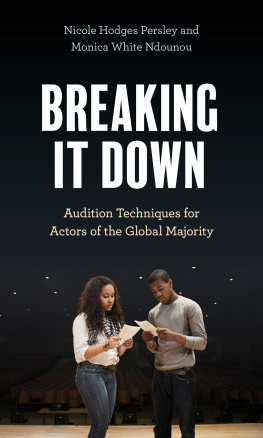
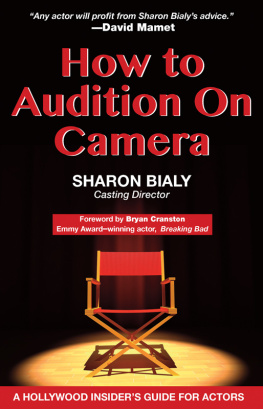
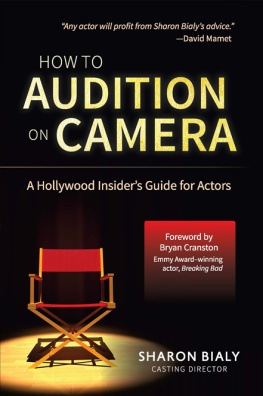
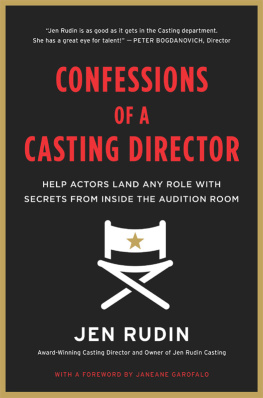
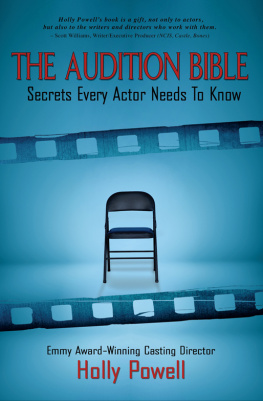
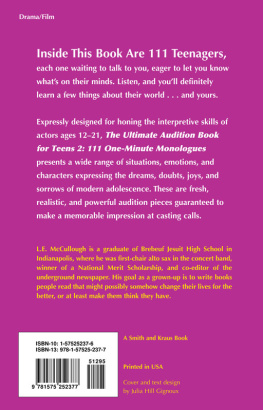
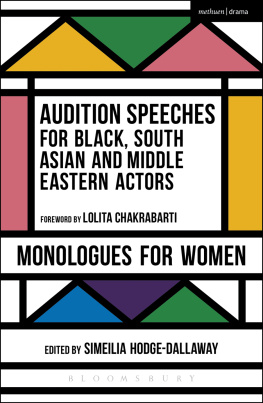
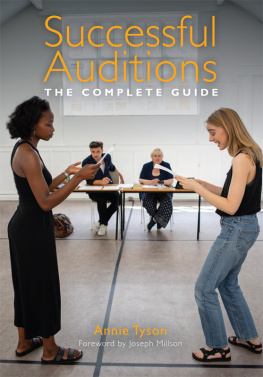

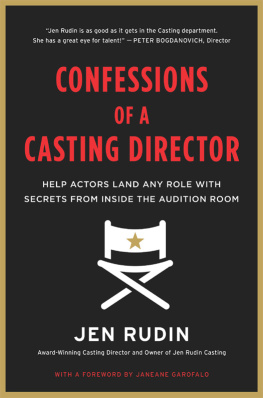
 TM The paper used in this publication meets the minimum requirements of American National Standard for Information Sciences Permanence of Paper for Printed Library Materials, ANSI/NISO Z39.48-1992.
TM The paper used in this publication meets the minimum requirements of American National Standard for Information Sciences Permanence of Paper for Printed Library Materials, ANSI/NISO Z39.48-1992.